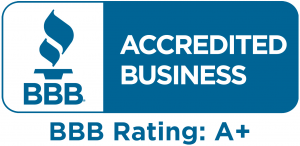Most of us take electricity for granted. We walk into a room, flick a switch, and – ta-da! – we have lights. We turn a nob on our electric stove and the burner comes to life. Thank you, electricity! We walk into a factory and start up the machinery. It works…all thanks to the presence of electricity.
Today, all these things seem quite commonplace to us and we rarely give second thought to the presence of electricity, except perhaps during a blackout or when a problem develops.
In reality, however, electricity is a powerful thing and certainly something we should take seriously, both in our homes and in our workplaces. Accidents that involve electricity and electrical wiring can be – and often are – deadly.
Working around electricity is safe when employees are taught how to respect it and how to handle wiring- or electrical-related situations should they arise. Indeed, some tradespeople are more apt to encounter electrical dangers than others, especially those who work in construction or as engineers, electricians, or maintenance workers, and they should be well-educated as to how to avoid dangers.
Nevertheless, it really is important for workers of all sorts to be educated on the most common workplace electrical dangers.
Inadequate wiring and/or overloaded circuits
When wires are of an inappropriate size for the current they are handling, wiring hazards will be present. Sometimes, workplaces also use incorrect extension cords for the loads they are carrying. A regular household extension cord certainly may not be appropriate for some workplace uses. In addition, overloaded outlets cause fire risks as do improper circuit breakers. All of these should be checked regularly.
Overhead power lines
Those who work outside and in high places face power line hazards regularly. Workers should be trained to remain a certain distance from power lines and companies should be sure not to build or store things too close to power lines. If non-electrical workers are working near power lines, barriers and proper signage should be displayed in order to avoid a tragedy.
Improper Grounding
When inspectors come to workplaces, one of the most common wiring hazards they spy is the improper grounding of equipment that requires electricity. Proper grounding can eliminate – or certainly reduce – the risk of electrocutions occurring on the job. And most of all, the metallic grounding pin should never be removed from a plug in order to make it fit a particular outlet. It is this pin that returns unneeded voltage to the ground, which is essential for preventing fires and other hazards.
Poor or damaged insulation
When insulation on wires is inadequate or damaged/defective, disasters can happen. Hence, insulation should regularly be inspected, and if it demands replacement, all power sources should be shut off before work begins. In addition, an “easy fix” should never be attempted, such as use of electrical tape to solve an insulation issue.
Water and electricity
It’s a lesson that most learn quite early in life. Water and electricity don’t mix! Electrical equipment should not be operated near water or a wet environment, and if there is an incident with water and equipment has gotten wet, a professional should be called in to address the situation.
The Centre for Occupational Health and Safety suggests that businesses keep an electrical safety checklist on hand that will remind workers of the hazards listed above as well as others involving electricity and electrical equipment. The checklist should help identify hazards and help prevent them as well.
Most of all, it’s important to know one’s limits. Hiring a good electrical contractor to handle hazardous wiring and electrical situations is essential to the safety of workers and those around them.


